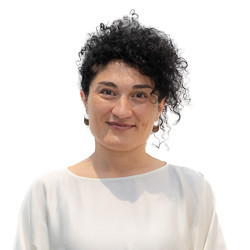Viet Nam
The Context
Two decades of rapid economic growth and market integration have transformed Viet Nam from a subsistence economy to an emerging economy of lower-middle-income status, integrated into global markets. The structure of the economy has shifted from agriculture to industry and services.
Yet in rural areas, home to 70 per cent of the population, poverty remains a severe and chronic problem. The average income per capita there is less than 50 per cent of that in urban areas, and the rural poverty rate is nearly three times the urban rate.
Poverty gains are fragile, and a portion of the population are living close to the poverty line. Poor and extremely poor people are concentrated in ethnic minority groups.
Rural people have little or no savings or State support and are almost totally dependent on gathering natural resources and subsistence-level agriculture. This makes them especially vulnerable to unexpected shocks. Around 90 per cent of total spending among rural residents is for basic living costs. Most of this income stems from agriculture, forestry and aquaculture production, and from wages derived from unskilled manual labour.
Half of the nation’s poor people belong to ethnic minorities, though they represent only 15 per cent of the population. Poverty is concentrated in the upland areas of the north-east and north-west mountains, the central coastal region, and the parts of the central highlands and Mekong Delta where ethnic minorities reside.
Improving living standards in rural areas have also brought income inequity and environmental degradation. Urbanization and industrialization often deprive poor rural people of access to land, while leaving behind unskilled labourers and unemployed youth. These marginalized groups are highly vulnerable to shocks from climate change and natural disasters, as well as economic and health shocks.
The Strategy
In Viet Nam, IFAD focuses on activities that have the greatest impact on residual poverty in rural areas, reflecting the emerging challenges and opportunities of a lower-middle-income country, a changing economic structure and growing urbanization.
Our current strategy and portfolio of programmes and projects are aimed at developing market-led innovations that aid poor people. They work by deepening institutional and policy reform at the provincial level and building capacity in districts and communes and among poor farm households.
We are also working to incorporate IFAD-supported experience into government systems and programmes. The process aims at:
- integrating participatory and market-oriented local planning into the government’s socioeconomic development planning processes;
- capacity-building at all levels to improve the management of rural development outcomes;
- improving access to and quality of a variety of rural services;
- community-led infrastructure development;
- increasing market access and pro-poor value chains and sustainable livelihoods, both on and off the farm;
- formation and support for producer cooperatives and other common-interest groups.
A number of IFAD-supported projects in Viet Nam also include climate change response, since the country is predicted to be significantly affected by climate change.
Results-based country strategic opportunities programme (COSOP) Arabic | English | French | Spanish
Country Facts
About 70 per cent of Vietnamese people live in rural areas and have livelihoods dependent on agriculture.
About one third of the population (around 30 million people) lives close to the poverty line. Poor and extremely poor people are mainly concentrated in ethnic minority groups.
Since 1993, IFAD has invested US$334.5 million to finance 14 projects and programmes related to agricultural development in Viet Nam, benefiting 669,070 households.

